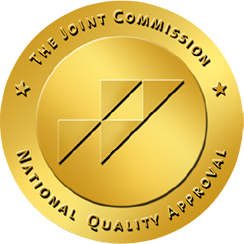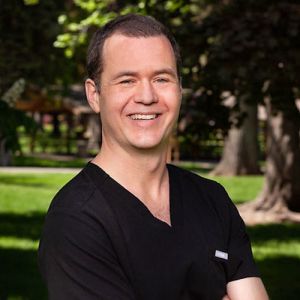








Patriot PowerUp Program
Verified Center
This provider's information has been quality-checked by Recovery.com's Research Team for accuracy and completeness, including center verification through appropriate third-party organizations.
Treatment Focus
This center treats mental health conditions and co-occurring substance use. You receive collaborative, individualized treatment that addresses both issues for whole-person healing.
Primary Level of Care
Offering intensive care with 24/7 monitoring, residential treatment is typically 30 days and can cover multiple levels of care. Length can range from 14 to 90 days typically.
Treatment Focus
This center treats mental health conditions and co-occurring substance use. You receive collaborative, individualized treatment that addresses both issues for whole-person healing.
Primary Level of Care
Offering intensive care with 24/7 monitoring, residential treatment is typically 30 days and can cover multiple levels of care. Length can range from 14 to 90 days typically.
Provider's Policy
As a Community Care Partner, Patriot PowerUp provides Veterans prompt, high-quality treatment for PTSD, TBI, and co-occurring mental health concerns. To expand access to our clinical model, we partner with most commercial insurance carriers on an out-of-network basis; please note we are unable to accept state-funded insurance at this time.
Patriot PowerUp Program
Patriot PowerUp Program
About Patriot PowerUp Program
Patriot PowerUp runs a 45-day residential program near Coeur d’Alene, Idaho, for veterans coping with PTSD, depression, anxiety, and traumatic brain injury. The program combines levels of care: focused neuro-rehabilitation, three one-on-one therapy sessions each week, and daily group therapy using methods shown to help. Available to veterans nationwide through the VA Community Care Network, Patriot PowerUP helps people start toward a purpose-filled life.
Harness Data-Driven Tools for Healing
Patriot PowerUp offers veterans a personalized, data-driven recovery plan in four clear steps. First, Reveal gathers health data—blood tests, brain-function assessments and surveys—to pinpoint each individual’s needs. Next, Repair applies targeted treatments such as hyperbaric oxygen therapy, ketamine infusions and customized nutrition to address brain injuries, PTSD and depression. Then, Rewire strengthens positive neural pathways through cognitive exercises, psychotherapy and real-time neurofeedback. Finally, Retrain embeds lasting habits via guided fitness routines, ongoing nutrition coaching and practical mental-health education.
Experience a Serene Mountain Retreat
Patriot PowerUp provides veterans with private rooms to create a calm, restorative atmosphere as they heal. Veterans can enjoy a heated pool for gentle exercise and stress relief, while the pet-friendly policy lets trusted animal companions remain by their side throughout treatment. The center also allows cell-phone access, so veterans can stay connected with loved ones on their own schedule. Beyond the comforts indoors, Patriot PowerUp’s mountain setting, with guided meditation spaces and nearby hiking trails, invite a balanced routine for body and mind.
Connect with Ongoing VA Support
The 45-day residential program gives veterans an intensive, data-driven reset, then equips them to carry that progress forward by teaching real-life skills like nutrition, fitness, psychoeducation, and brain-training techniques under their “Retrain” pillar so healing doesn’t evaporate when they leave the house. Because the program is tied into the VA Community Care Network, veterans leave with care that’s clinically rigorous and connected to longer-term supports, not something they have to cobble together alone.

Highlights from the Center
Highlights
These highlights are provided by and paid for by the center.
Trauma-Informed Care
Master's and Doctoral Level Therapists
Private Rooms Available
Tech Friendly
Center Overview
Treatment Focus
This center treats mental health conditions and co-occurring substance use. You receive collaborative, individualized treatment that addresses both issues for whole-person healing.
Joint Commission Accredited
The Joint Commission accreditation is a voluntary, objective process that evaluates and accredits healthcare organizations (like treatment centers) based on performance standards designed to improve quality and safety for patients. To be accredited means the treatment center has been found to meet the Commission's standards for quality and safety in patient care.

Patriot PowerUp Program
Insurance Accepted




More Altior Healthcare Locations
Recovery.com Verified Listing
Recovery.com verified that the name, location, contact information and license to operate for this treatment provider are valid and up-to-date.

Joint Commission Accredited

Licensed by Idaho
Recovery.com is an independent, third-party mental health resource. Verification does not imply endorsement and does not guarantee the quality of treatment services.
Meet Your Care Team

John M. Thurston
Psychiatrist
MD

John Drozd
Psychologist
Ph.D.

Christopher Spositi
Senior Veteran Behavioral Health Advisor
Veteran – U. S. Army
Your Care Options
Specializations
Grief and Loss
Grief is a natural reaction to loss, but severe grief can interfere with your ability to function. You can get treatment for this condition.
Anxiety
Anxiety is a common mental health condition that can include excessive worry, panic attacks, physical tension, and increased blood pressure.
Depression
Symptoms of depression may include fatigue, a sense of numbness, and loss of interest in activities. This condition can range from mild to severe.
Post Traumatic Stress Disorder
PTSD is a long-term mental health issue caused by a disturbing event or events. Symptoms include anxiety, dissociation, flashbacks, and intrusive thoughts.
Veterans
Patients who completed active military duty receive specialized treatment focused on trauma, grief, loss, and finding a new work-life balance.
Trauma
Some traumatic events are so disturbing that they cause long-term mental health problems. Those ongoing issues can also be referred to as "trauma."
Who We Treat
Men and Women
Men and women attend treatment for addiction in a co-ed setting, going to therapy groups together to share experiences, struggles, and successes.
Veterans
Patients who completed active military duty receive specialized treatment focused on trauma, grief, loss, and finding a new work-life balance.
Treatment Services
Licensed Primary Mental Health
Some primary care providers offer mental health diagnosis and treatment. This can prevent patients from developing more serious conditions.
Residential
In a residential rehab program, patients live onsite, with access to daily treatment and 24-hour care. An average stay is 30-90 days.
Approaches
Personalized Treatment
The specific needs, histories, and conditions of individual patients receive personalized, highly relevant care throughout their recovery journey.
Therapies
1-on-1 Counseling
Patient and therapist meet 1-on-1 to work through difficult emotions and behavioral challenges in a personal, private setting.
Trauma-Specific Therapy
This form of talk therapy addresses any childhood trauma at the root of a patient's current diagnosis.
Transcranial Magnetic Stimulation
Localized magnetic pulses stimulate areas of the brain to increase brain activity and reduce abnormal functions.
Eye Movement Therapy (EMDR)
Lateral, guided eye movements help reduce the emotional reactions of retelling and reprocessing trauma, allowing intense feelings to dissipate.
Medication-Assisted Treatment
Combined with behavioral therapy, prescribed medications can enhance treatment by relieving withdrawal symptoms and focus patients on their recovery.
Nutrition Counseling
Nutritious food helps patients heal from within, setting them up for mental and bodily wellness as they learn about healthy eating.
Psychoeducation
This method combines treatment with education, teaching patients about different paths toward recovery. This empowers them to make more effective decisions.
Neurofeedback
During therapy, patients observe their own brain waves as interpreted by an EEG. This empowers them to understand and regulate emotional responses.
Conditions We Treat
Anxiety
Anxiety is a common mental health condition that can include excessive worry, panic attacks, physical tension, and increased blood pressure.
Depression
Symptoms of depression may include fatigue, a sense of numbness, and loss of interest in activities. This condition can range from mild to severe.
Post Traumatic Stress Disorder
PTSD is a long-term mental health issue caused by a disturbing event or events. Symptoms include anxiety, dissociation, flashbacks, and intrusive thoughts.
Substances We Treat
Alcohol
Using alcohol as a coping mechanism, or drinking excessively throughout the week, signals an alcohol use disorder.
Co-Occurring Disorders
A person with multiple mental health diagnoses, such as addiction and depression, has co-occurring disorders also called dual diagnosis.
Drug Addiction
Drug addiction is the excessive and repetitive use of substances, despite harmful consequences to a person's life, health, and relationships.
Languages
Care Designed for Your Needs
Personal Amenities
Amenities
Special Considerations

Learn More About the Center
Understanding PTSD
Discover how understanding PTSD, effective treatments, and the power of support can change veterans’ lives.
The Rise of Psychedelic Therapy
Explore how a once taboo therapy using psychedelics has emerged has emerged as a hopeful new frontier for veterans.
How to Carry Strength Forward
Recognize that reintegration doesn’t require starting over.
Treatment Options for Anxiety
Explore how evidence-based therapies, innovative treatments, and community support are giving veterans powerful pathways to manage anxiety.





